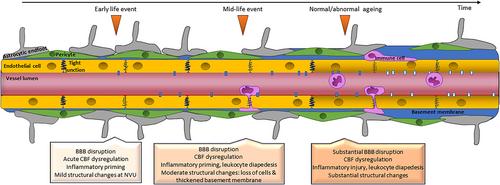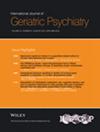Developmental priming of early cerebrovascular ageing: Implications across a lifetime
Abstract
Introduction
Neurological conditions such as Alzheimer's disease and stroke represent a substantial health burden to the world's ageing population. Cerebrovascular dysfunction is a key contributor to these conditions, affecting an individual's risk profile, age of onset, and severity of neurological disease. Recent data shows that early-life events, such as maternal health during pregnancy, birth weight and exposure to environmental toxins can ‘prime’ the vascular system for later changes. With age, blood vessels can become less flexible and more prone to damage. This can lead to reduced blood flow to the brain, which is associated with cognitive decline and an increased risk of stroke and other cerebrovascular diseases. These in turn increase the risk of vascular dementia and Alzheimer's disease.
Objectives
We aim to explore how early life factors influence cerebrovascular health, ageing and disease.
Methods
We have reviewed recently published literature from epidemiological studies, clinical cases and basic research which explore mechanisms that contribute to cerebrovascular and blood-brain barrier dysfunction, with a particularly focus on those that assess contribution of early-life events or vascular priming to subsequent injury.
Results
Perinatal events have been linked to acute cerebrovascular dysfunction and long-term structural reorganisation. Systemic disease throughout the lifetime that produce inflammatory or oxidative stress may further sensitise the cerebrovasculature to disease and contribute to neurodegeneration.
Conclusions
By identifying these early-life determinants and understanding their mechanisms, scientists aim to develop strategies for preventing or mitigating cerebrovascular ageing-related issues.


 求助内容:
求助内容: 应助结果提醒方式:
应助结果提醒方式:


